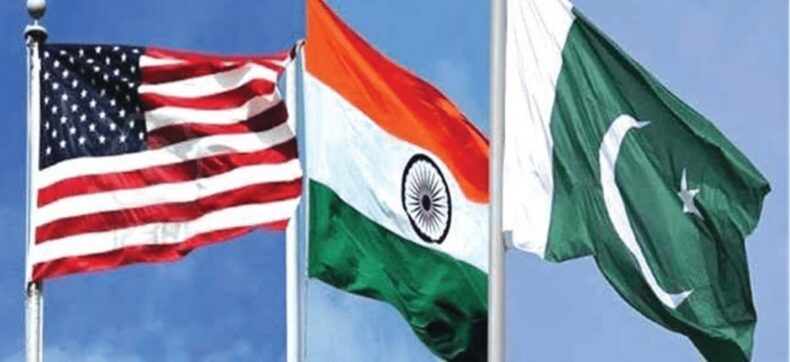Iran President Ebrahim Raisi was likely to place a demand to purchase Iranian oil in the SCO meeting at Samarkand on 14 – 15 September 2022, which has been halted ever since the implementation of CAASTA sanctions by the Trump administration.
How did CAASTA sanctions hit Iran?
Countering American Adversaries through Sanctions Act (CAASTA) was introduced in 2017, mainly to prevent the associate nations of the U.S from entering into defence trade with the adversary nations of the U.S which were primarily Russia and North Korea for unbinding the interest of the U.S.
The case of Iran was a bit different; it had not confronted the U.S directly, but the U.S allies in the Middle East like Saudi Arabia and UAE had bitter altercations with Iran regarding regional rivalry and nuclearization in Iran.
This instigated the U.S to gather in P-5 nations + Germany to bring up restrictions on Iran called as Joint Comprehensive Plan of Action (JCPOA) in 2015, according to which the oversea assets of Iran and over $100 billion were frozen and oil trade was restricted.
And Iran was required to restrict Uranium enrichment below weapon grade (3.3%) for 15 years, following which the sanctions will be relaxed.
But the Trump administration in late 2017 unilaterally withdrew the JCPOA and imposed sanctions on Iran also bringing it under CAASTA in 2018 which also impacted oil imports into India and Chabahar-port project (which had just commenced on Jan 2018).
How did India get exemptions for S-400 from Russia?
India and Russia had already negotiated for S-400 missile systems in the 2016 BRICS meeting while CAASTA was imposed in 2017, (further China was a common rival for U.S and India which impelled the U.S to exempt India).

However, India has fewer assertions to defend its connectivity with Iran which has restricted the oil trade and the ongoing Chabahar-port project.
Why is India interested in Iran?
India needs Iran mainly for four reasons:-
- To improve connectivity and diplomacy with Afghanistan.
- To establish International North-South Trade Corridor (INSTC) which eases cargo transportation.

- This will enable Turkmenistan Afghanistan Pakistan India (TAPI) gas pipeline.

- To establish multimodal connectivity with Central Asia under the Ashgabat agreement.

How can India tunnel into Iran?
Pakistan – approach:-

The two nations sharing a dark history of bitter feud had fewer instances of convergence, but on certain aspects like CBDR (Common But Differentiated Responsibilities) about the climate change, impacts of (Anti-Pak) terror group in Afghanistan, seeking trade privileges under patent rights in WTO (against the P-5 nations) both the nations share their bread and butter.
Just a few months ago (Feb 2022) India was able to ship 2500 MT wheat to Afghanistan, which was delegated through Pakistan. And recently Pakistan is willing to accept humanitarian aid from India to recover from flood impacts.
Apart from this, Pakistani Prime Minister Shehbaz Sharif was also interested in improving regional connectivity.
Dilapidated Pakistan
Having inflation above 20% the recent floods have further inflicted a loss of $40 billion, and the foreign debt accounting for 80% of GDP has further crippled the nation (mainly from CPEC).
Opportunity for India
Thereby Pakistan desperately needs reliable help (unlike the deceptive policy of China), hence keeping aside the PoK dispute both nations can have passive diplomacy to mutually co-operate to alleviate the bewailing conditions.
Further, projects like INSTC and TAPI are very much essential for Pakistan too.
Mitigating the Chinese challenge
Though having hegemony China is undergoing negative demographic growth, which shall impact its economy in the longer run, thus India having a greater working-age population can easily surpass China’s economic potential by the next 4 decades as per the predictions.
By having clout in Southeast Asia India can resolve the border issue with China, and under the shadow of this relationship, India can amiably resolve the Kashmir dispute and establish eternal peace.
US – approach:-

A commonly shared interest in the region between the two nations exists, US particularly is focused on Oman, Saudi Arabia, Kuwait and Israel, and the Ashgabat agreement connects some of these nations, and it can further be extended into Europe nations where NATO dominates, if US and EU co-operates.
Europe which needs an alternative to Russian oil can be benefited from TAPI project.
US being wary about Chinese investments (BRI), can reassess the investments under B3W (upgraded as PGII) of G7 to consider India’s vision.
Simultaneously, Russia being recalcitrant over JCPOA, is shoddy to abide by its commitments under the agreement and encouraging Iran to partner in developing nuclear weapons.
Is it pertinent for the US to realize the futility of sanctions, which only amalgamates more adversaries?
Comment your views below, thankyou
Read More –













